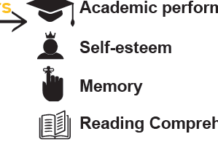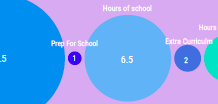by Jaelyn Gray and Frank Hall; Farnsely Middle School (Louisville, KY)
“Hey! Stop daydreaming!” are words you might hear from your teacher if you’re daydreaming in class. But when you’re not daydreaming in class you would never expect to hear the words, “Hey! Start daydreaming!”

When she was getting her masters in writing at John Hopkins University, Amy Fries began researching daydreaming and creativity. She became an author of a book called Daydreaming at Work: Wake up Your Creative Powers. According to her book review at amazon.com, Fries says,” Daydreams are not just wishful thinking! They are your source for ideas, energy, and motivation.”
Fries’ view point on daydreaming is that it should not be frowned upon because its natural and it helps our creativity. She researched this by helping authors develop dreams and ideas. She made them describe their daydreams or even draw them if they could and she analyzed them.
According to a July 16, 2013. article on nationalgeographic.com, scientists say that daydreaming improves thinking; it’s also as important as sleep. Anthony Jack, PhD, a cognitive scientist at Case Western Reserve University in Ohio, says daydreaming focuses you on one thing and makes other parts of the brain inactive making you only focus on that daydream. He studied Functional Magnetic Resonance Imaging (FMRI) to learn about social processing in 2012.
According to psychcentral.com, a website on mental health, an FMRI detects change in the amount of oxygen in the blood stream in your brain that happen when the nerves in your brain are more active than normal. The brain consumes more oxygen when active and the FMRI can produce a map that shows which parts of the brain are involved during a certain mental process.
When daydreaming, Jack noticed that the brain became more active than normal.
Peter Delaney, a psychologist at the University of North Carolina, Greensboro, says daydreaming also makes you forget what you were doing, which would help you focus on one thing. According to Delaney, you daydream less as you get older. That’s why older people are less creative than younger people.
At our school, 150 out of 200, or 75% of the students that we surveyed said that they daydream at school.
Autumn Cunningham says that “Daydreaming helps me because when I can’t think of an idea for something and start to daydream, an idea will come to me.”
Matthew Creech says that “Daydreaming hurts me, because I will start to daydream in the middle of class and not be able to pay attention. So I won’t know what to do.” Jaelyn Gray and Frank Hall

This work is licensed under a Creative Commons Attribution-NonCommercial-NoDerivs 3.0 Unported License














I loved the article very much I think this will help many people in there lifes. LOVE this story!!!!!!:smile:yes:flag
Thank you Frank!!!!!
amazing! if only I could focus my daydreaming:smile
This article totally describes my whole intire backstory of school… nope I’m playing this article is fantabulous…:wah
I do this all the time. Daydreaming is basically 50% of my life. It helps me generate ideas during writing tests, daydreaming helps me think mainly